|
Postcard Union Pacific Transfer Depot, Council Bluffs, Iowa One day you wake up in a town you can’t name and there’s no way to plot a path from A to B. You hear a train, then you don’t, the sound bounces off the hills, gets trapped in a gulley or skims a church spire only to scatter over a silo that dreams of nothing but thunder and grain. Who says the route is not the shortest distance between two points, says it’s a branching river and you must get in your little boat and paddle down each grassy inlet and tiny stream—as if sets of unreadable alphabets opening beneath your feet and clambering over fence posts were a good thing? I don’t want to come to the edge of myself, don’t want that sinking towards a bottom that never seems to come. Sometimes I’m held together with pins and strings. I’m pieces of fabric, a dress waiting to be seamed, or I’m the stitches ripped out, threads blown across the floor. I want to lie on a cool, clean sheet, feel it drape over my face, arch my back like a cat, be reduced to nothing but bone, the big wind that races across the field, bend the trees back, push clouds, be shadow, whip past blouses hanging on the line like women waiting for their lives, all of it silver and into the sun. Previously published in Tramp (LSU Press, 2018). Joelle Biele is the author of Tramp and the editor of Elizabeth Bishop and The New Yorker: The Complete Correspondence. A Fulbright professor in Germany and Poland, she is currently the Howard County Poetry and Literature Society’s Writer-in-Residence, doing writing workshops with Maryland high school students. Montgomery, 1998
Because this is Montgomery in 1998, the first lessons I learn in 7th grade are I can’t say nigger too loud and all students need to wear t-shirts under their Barkley jerseys. Because this is Montgomery in 1998, I’m smart enough not to say nigger too loud so my parents send me away to the gifted school downtown. Because this is Montgomery in 1998, “gifted” means mostly white kids who can’t fight or can’t afford private school. Because this is Montgomery in 1998, my white friend in Latin won’t talk to me about anything other than No Limit Records and East Bay books. Because this is Montgomery in 1998, Most of my dreams end with a light-skinned girl’s legs in English class. One or two dreams will never leave the Latina who gave me my only nickname. Because this is Montgomery in 1998, the school year really doesn’t matter because no one notices me stringing up my Terrell Davis cross trainers on the first day. Because this is Montgomery in 1998, my grandmother dies and I feel weak when I try to hold up my fainting mom in church. Because this is Montgomery in 1998, my biggest failures are my failure to dunk and my failure to raise my eyebrow like The Rock. Because this is Montgomery in 1998, I’m the last kid at home, waiting for the hum of a car in the driveway while I count all the ghosts I want to be when I grow up. Previously published in Banango Street. Jason McCall has an MFA from the University of Miami. His collections include Two-Face God, Dear Hero, Silver, I Can Explain, and Mother, Less Child. He is co-editor of It Was Written: Poetry Inspired by Hip-Hop. He is an Alabama native, and he teaches at the University of North Alabama. Red Riding Hood As Wild Child I used to love to walk in the woods in the rain. Mother said it was because I was a brainless child, stupid and wild. She was also fond of asking, “Were you raised in a barn?” And I kept wanting to answer, Yes Mother, that makes you a cow, but I knew to hold my tongue. In my red cape, I was never cold. I could go out in any storm and be completely safe and warm. Grandma made that cape with love for sure, but it also seemed sprinkled with a bit of fairy dust. It was a magical sheath, and I was lucky to be entrusted with its power to make others adore me when I wore it. The showers of praise I received made me feel special as I never had. The hooded cape suited me, all the neighbors said, these same folks who never noticed me before. But to my mother, I was still an ordinary brat, the reason for everything wrong in her life (like father leaving her for a younger wife) and no coat was ever going to change that. Whenever I could arrange to sneak out, I did—in rain, sleet, snow. I tried to be discreet, shutting the creaky back door, quick and crisp. It was always a risk. The front door was an impossibility. Mother was usually passed out drunk on the couch, but the slightest rearrangement of a particle of dust, and she’d be up and ranting. “Red, get back here!” she’d scream. “Scrub those pots till you see God’s face in them.” No matter how hard I polished, I never saw anyone’s face in them but my own. Previously published in Red Riding Hood's Real Life (Night Rain Press, 2017). Lana Hechtman Ayers has authored nine collections of poetry and is about to release her first speculative novel—a time travel adventure. She manages three poetry presses and works as a manuscript consultant. Lana lives on the Oregon coast where she enjoys the near-constant plink of rain on the roof and the sea’s steady whoosh. Kamari One day, the Moon will love herself. She will no longer play second to sun. She will no longer be the reflection to another’s light. She will emanate tar black velvet over every living thing. In our blindness we will feel her light, like evaporated honey on our skin. She will not pull travelers & tides & wombs to her. She will not need their adoration. When the moon loves herself one day she will not be able to hide her face. She will break orbit, other moons in tow, and revolve in her own magnetism. And they will wake up one day, the great grandchildren of my great-greats, with the sun in their eyes. And will blind themselves that morning & dread the emptiest night they will ever see, on the day the moon loves herself. On that day, they will wonder why she ever loved them to begin with. Previously published in NILVX: A Book of Magic, Vol. I Issue IV: Sphere of Luna. Operating with the belief that everything she creates is intended to foster understanding of self and surroundings, Kamari Bright is a St. Louis-born writer who has had work featured in publications, included in exhibits, and released her first book through 7 Publishing in 2016. The Tune of It A response to Hailey Leithauser’s poem “Short, Sweet” for 32 Poems Magazine Short, Sweet slips down the sheet of white space like notes rising dropping then sounds abound repeat trippingly seeingly upon the ear slant rhyme cambering the iamb (lifting) into slim-sweet fleetingness (yes the tune of it) Previously published in 32 Poems, with accompanying Celtic flute by Christine Hemp. Christine Hemp has read her poems and essays on NPR’s Morning Edition, and her awards include a Washington State Artist Trust Fellowship for Literature. A poem of hers traveled over 1.5 billion miles on a NASA mission to monitor the birth of stars. She is author of “That Fall.” Hemp also plays Celtic and jazz flute, often weaving poetry into her performances. A former art critic, she is drawn to writing poems from paintings and sculpture; one was featured recently at a Seattle gallery which paired writers with single pieces of art. Hemp teaches poetry and nonfiction at the University of Iowa Summer Writing Festival. She lives with her husband and horses in Port Townsend, Washington. Prayer to Recognize the Body There must be a word for this heart-growing, to explain these teeth, stinging skin like a gift, tremble of hair coaxed from sweat and scalp. The next thing I covet: the third eye’s velvet blink, the green pulse in my veins of a forest I can’t make myself step out of. And what of all the things remade, swabbed free of salt? Because who can tell the difference in the dark between antlers and branches and bone, between the thick-haired chest of an animal and you. Previously published in Passages North. Born in New Delhi, India, Vandana Khanna is the author of two collections: Train to Agra and Afternoon Masala, as well as the chapbook, The Goddess Monologues. Her poems have won the Crab Orchard Review First Book Prize, The Miller Williams Arkansas Poetry Prize, and the Diode Editions Chapbook Competition. Substitutes For "Before My Father Was Diagnosed With Cancer" * they pushed a man into me when all i wanted was the sun to rise * son, son, let us build castles & be castles together-- i sit atop your shoulders & stay there. * i do not want children, anyone that loves so unknowingly * they took the tumor that was your name & gave back to you so much less than you were owed * my father a rageful wind * nowadays pauses over the phone remind me i am losing you from three thousand miles away * by violence come violence by violence a son * son, son, forgive go on show god the good in you still-- so i rebuild & rebuild what will never stay mine * bad things don't care bad things break the rules dad break the rules & live * the birds sing & in it, your glorious laugh your soft hands Previously published in DIAGRAM. Tyler Tsay is a student at Williams College and the Program Director of The Speakeasy Project (thespeakeasyproject.net). His work, both past and upcoming, has been or will be published in The Offing, The Margins: AAWW, BOAAT, Vinyl Poetry, DIAGRAM, Boxcar Poetry and others. He is the recipient of the Bullock Poetry Prize, awarded by the Academy of American Poets and judged by Camille Rankine, and the former Editor in Chief of The Blueshift Journal (theblueshiftjournal.com). When not doodling, collecting quills, or composing cello pieces, he loves a good view, though having an atrocious fear of heights. And yes, fezzes are definitely cool. Candling Say that it bloomed, put down roots, lodged like an egg in a nest, snow in a cleft, wedged for a winter’s nap, say it turned three times round, curled up with its nose toward the door. Say myometrium. Say wand. Say gel, neoplasm, adenoma. Say benign. Benign. Put a light bulb behind it and watch it tumesce. Say the raven is growing a new planet in your body. Should the nascent body bloom, say is this the beak, that the beginning of legs. First published in North American Review and later included in Jenifer's second poetry collection,Grayling. Jenifer Browne Lawrence is the author of Grayling (Perugia Press, 2015), and One Hundred Steps from Shore (Blue Begonia Press, 2006). Her work appears in Bracken, The Coachella Review, Los Angeles Review, Narrative, North American Review, and elsewhere. She lives on Puget Sound, and edits the Seattle-based journal, Crab Creek Review. Say hi on twitter @jeniferbrowne. The Lesser Temple Before the rain came, like a stampede of lakes, I had climbed halfway down the mountain alone-- only the tremor of exhaled lullabies could flatten the tympani of my chest. We had interrupted nuns and monks in the summit village midway through a meal. My stance of guilt and his entitled stride. Not holding hands, even when the barking dog, charged with protecting such holiness, kept teeth and relentless noise beside me. I would end up crossing that same dog three more times like an omen as I had forgotten something precious at the point where the green coupling gives way to the sky. There where he had stopped to share a breathless cigarette with me. There where I used two rusted bobby pins to become beautiful again for the photos. I found my way to the top the second time, found the little plastic bag, lingering where I had abandoned it to my excitement. The foretelling. The chalking up. The durations we entertained together and apart. I could’ve slipped easily like a pickax finding blood through flesh, like a scream finding absolution in the air, sliding like broken angles off of the side of the mountain, but still he didn’t follow me. He was always convinced that my skin made me resilient. I didn’t need protection. I wasn’t graceful, I was strong. I wasn’t fragile, couldn’t be. But he could justify every maligning move with just a shrug. Not me. When I made it back to the holy village, full of flowers and flat paths, the dog was there. But I had found a large stick in the jungle. It was black with rot, but thick in my hand. With each step toward the one who had led me here, I hit the ground and held my head up. The dog noted my accoutrement—the master I carved out of air. Allowed me to pass. As I was only a heart beating-- I passed the stone temple, roped off, but filled with colorful offerings. I ended up at the lesser temple. Tile floor dipped concave like a swimming pool at the center. And I made him wait, while I acknowledged the majesty of the space I had allowed myself into. The space of moot summation. The space of makeshift rationale. Let my eyes close for a moment. And took a breath. I hadn’t yet begun to cry because I hadn’t yet begun to feel sorry for myself. That would come later. Natasha Marin is a conceptual artist primarily engaged in the work of digital engagement and community building. Natasha's methodology pivots around co-creation and she uses platforms like Twitter, Instagram, and Facebook to find, connect, and build alliances among individuals and communities. Her work (often done in collaboration with non-artist-identified folks) supports building a creative legacy with sustainable communities through different levels of engagement, modes of connection, and methods of encounter. She is a recovering poet, author of Milk, creator of Reparations, #WomanCentered, Red Lineage, & Black Imagination. Hot Sauce Shrine
I used to be a high priestess of tail-feather feel-good mumbo jumbo, naysayer extraordinaire cobbling together some crazy quilt catechism to cling to as I tangled in the world’s thorns, frantic, fearing the chill soon to come. I haven’t turned holy roller or handler of snakes, but things changed slowly, or all at once. Maybe it was when I drove through a dust devil and inhaled its grit of cut grass and cigarette butts. I’ve taken to praying since the whirlwind shook me loose, or anyway I dip my head at stoplights until I get distracted by scenery, or birds, and the prayers come out confused. I’m clueless--my angel of place smokes blunts and speaks to me in bug bite braille. I know to visit St. Roch and turn his statue to the wall, but I hunger for alone time on an island with an organ that plays itself, or to whisper all my secrets to the hot sauce shrine. I read that the world is a dream of God, and now I don’t know what to do with my hands. The world is God’s dream and I am a sparrow passing through song and the brass glow of fire, or maybe that is wrong, and I’m trapped inside, stunned against the glass or down the chimney, terrified of kind hands that sweep me to the door. When I wake I’m walking the moonlit labyrinth with wet feet, and the birds are quiet because I have terrified them with the thunder of my stumbling. Oh God of everything that creeps, I light a candle and ask my question: Is it pilgrimage enough if I spend my life remembering the few seconds I was a bird? Previously published in Waterlines (LSU Press 2016). Alison Pelegrin is the author of four poetry collections, most recentlyWaterlines (LSU Press 2016), and Our Lady of the Flood (Diode Editions 2018) and a winner of the Diode chapbook prize. She is the recipient of fellowships from the Louisiana Division of the Arts and the NEA, and is on the graduate faculty at Southeastern Louisiana University. |
Blog HostNatasha Kochicheril Moni is a writer and a licensed naturopath in WA State. Enjoying this blog? Feel free to put a little coffee in Natasha's cup, right here. Archives
October 2019
Categories |
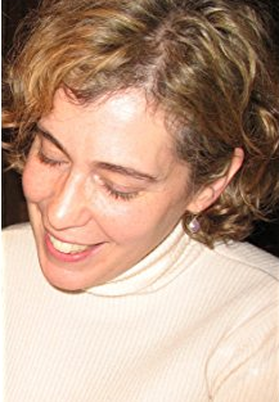
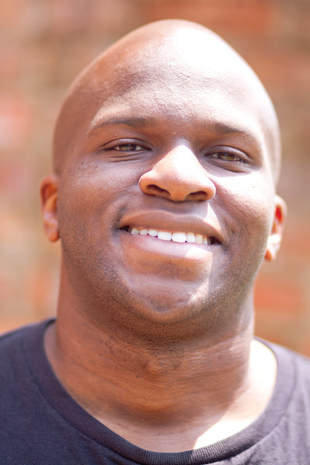
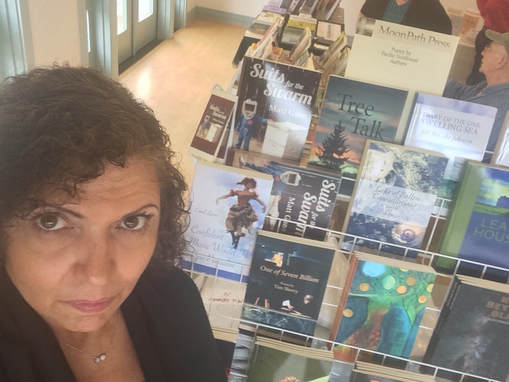

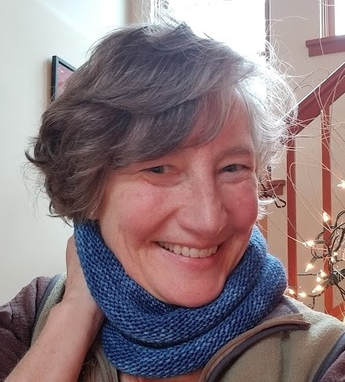
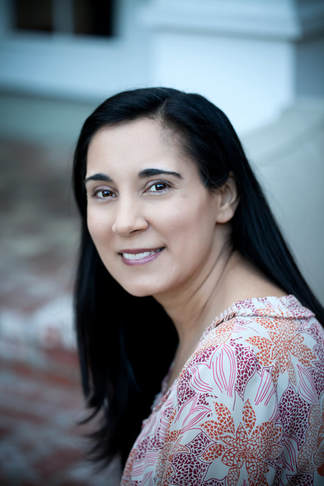
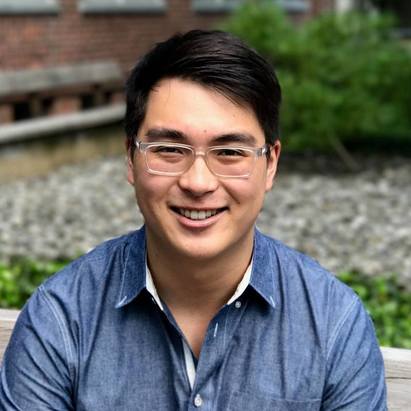
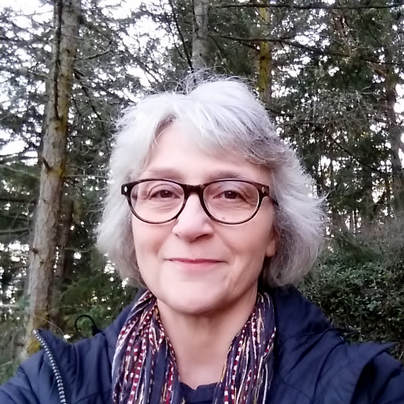
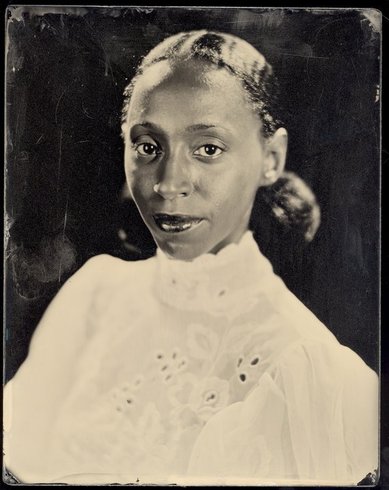
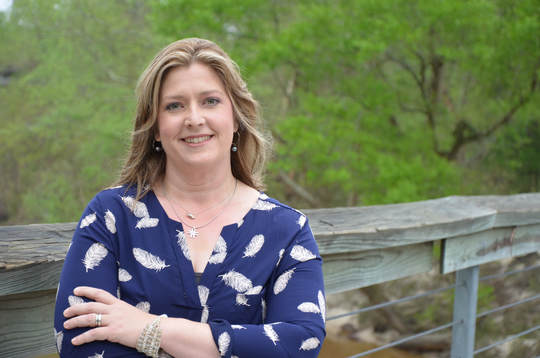
 RSS Feed
RSS Feed